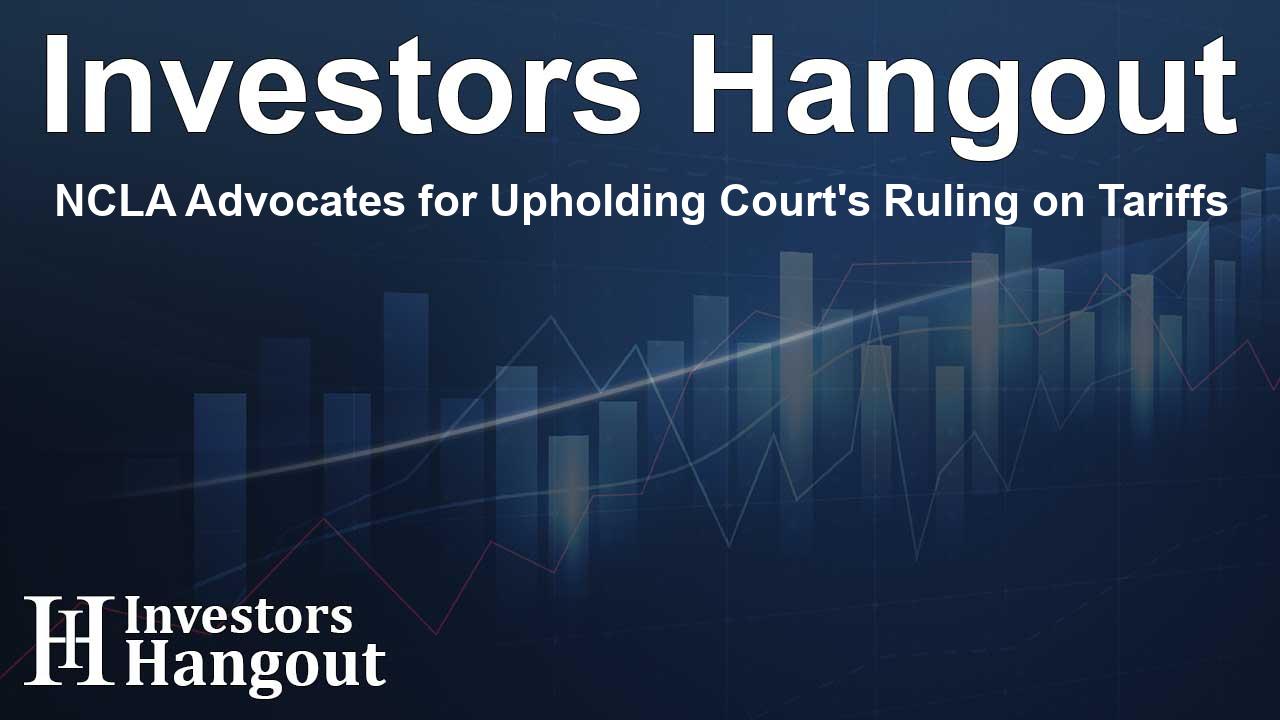NCLA Advocates for Upholding Court's Ruling on Tariffs

NCLA's Legal Challenge on Emergency Tariffs
The New Civil Liberties Alliance (NCLA) has taken a significant step in the battle against unlawful emergency tariffs. Filing an amicus curiae brief in an ongoing case, NCLA is challenging the government’s orders involving tariffs. These orders have been enacted under an act that is meant for defensive emergency measures, aiming to protect the U.S. from foreign threats. This case brings to light critical issues about jurisdiction and the extent of Presidential powers under the International Emergency Economic Powers Act (IEEPA).
Understanding the Core Issues at Stake
The lawsuit primarily addresses two key areas: jurisdiction and the legality of the emergency tariffs themselves. The NCLA firmly believes that the district court rightly asserted its jurisdiction over the case involving Learning Resources and rightly dismissed the government's attempts to sidestep the legal process by transferring the case to a less accessible court. This challenge is not merely about tariffs but touches upon fundamental principles of governance and the checks and balances outlined in the Constitution.
The Importance of Judicial Overreach Prevention
According to NCLA, the jurisdiction of the Court of International Trade (C.I.T.) is strictly limited to cases arising under tariff-related statutes. To classify tariffs under IEEPA or to assert that IEEPA provides a basis for imposing tariffs represents a dangerous overreach of authority. This argument sits at the heart of NCLA’s brief, where heads of legal counsel pointed out that the Constitution delegates Congress the power to set tariff rates, and no president has the authority to impose tariffs unilaterally.
Statements from NCLA Leadership
Andrew Morris, Senior Litigation Counsel at NCLA, emphasized the importance of the district court's opinion. He stated, "The D.C. Circuit should affirm the district court's well-reasoned opinion, holding that jurisdiction lay in the district court and that IEEPA does not authorize the President to order any tariffs whatsoever." His insights highlight the legal firm’s commitment to civil liberties and the rule of law.
Response to Government's Actions
John Vecchione, another Senior Litigation Counsel, echoed these sentiments, adding, "The Government can't force litigants into the Court of International Trade by fancifully deeming a non-tariff statute to be a tariff statute. Our clients deserved to have their case heard in the judicial district they reside in, not in a court a thousand miles from home.” His remarks underline the need for access to justice for all citizens, irrespective of their geographical location.
Looking Toward the Future of Legal Precedents
The implications of this legal battle extend beyond the immediate case at hand. As Mark Chenoweth, President of NCLA, commented, "The Constitution puts Congress in charge of setting tariff rates. No president can unilaterally impose them." This statement drives home the importance of maintaining the system of checks and balances that protects the rights of citizens against potentially overreaching government actions.
Conclusion and Further Information
For anyone tracking the developments in civil liberties and government authority, the NCLA's filings in court are crucial. These actions not only set a precedent but also serve as a reminder of the ongoing struggle for justice and the need for vigilance when it comes to the preservation of our rights. To learn more about NCLA’s mission and its various initiatives, potential followers can explore their official resources.
Frequently Asked Questions
What is the NCLA?
The New Civil Liberties Alliance is a nonpartisan, nonprofit organization dedicated to defending civil liberties and limiting government overreach.
What is the significance of the IEEPA?
The International Emergency Economic Powers Act allows the President to declare a national emergency and take actions necessary to protect the U.S., such as imposing sanctions, but does not grant the power to impose tariffs.
Why is jurisdiction important in this case?
Jurisdiction determines which court has the authority to hear a case, which impacts where and how justice is pursued.
What does the district court ruling entail?
The district court's ruling upholds its own jurisdiction over the case and finds that the government’s attempt to impose tariffs under IEEPA is unlawful.
How does this case affect future tariffs or trade policies?
The outcome may define the limits of executive power in trade matters and reinforce the constitutional balance of powers regarding tariff legislation.
About The Author
Contact Thomas Cooper privately here. Or send an email with ATTN: Thomas Cooper as the subject to contact@investorshangout.com.
About Investors Hangout
Investors Hangout is a leading online stock forum for financial discussion and learning, offering a wide range of free tools and resources. It draws in traders of all levels, who exchange market knowledge, investigate trading tactics, and keep an eye on industry developments in real time. Featuring financial articles, stock message boards, quotes, charts, company profiles, and live news updates. Through cooperative learning and a wealth of informational resources, it helps users from novices creating their first portfolios to experts honing their techniques. Join Investors Hangout today: https://investorshangout.com/
The content of this article is based on factual, publicly available information and does not represent legal, financial, or investment advice. Investors Hangout does not offer financial advice, and the author is not a licensed financial advisor. Consult a qualified advisor before making any financial or investment decisions based on this article. This article should not be considered advice to purchase, sell, or hold any securities or other investments. If any of the material provided here is inaccurate, please contact us for corrections.
